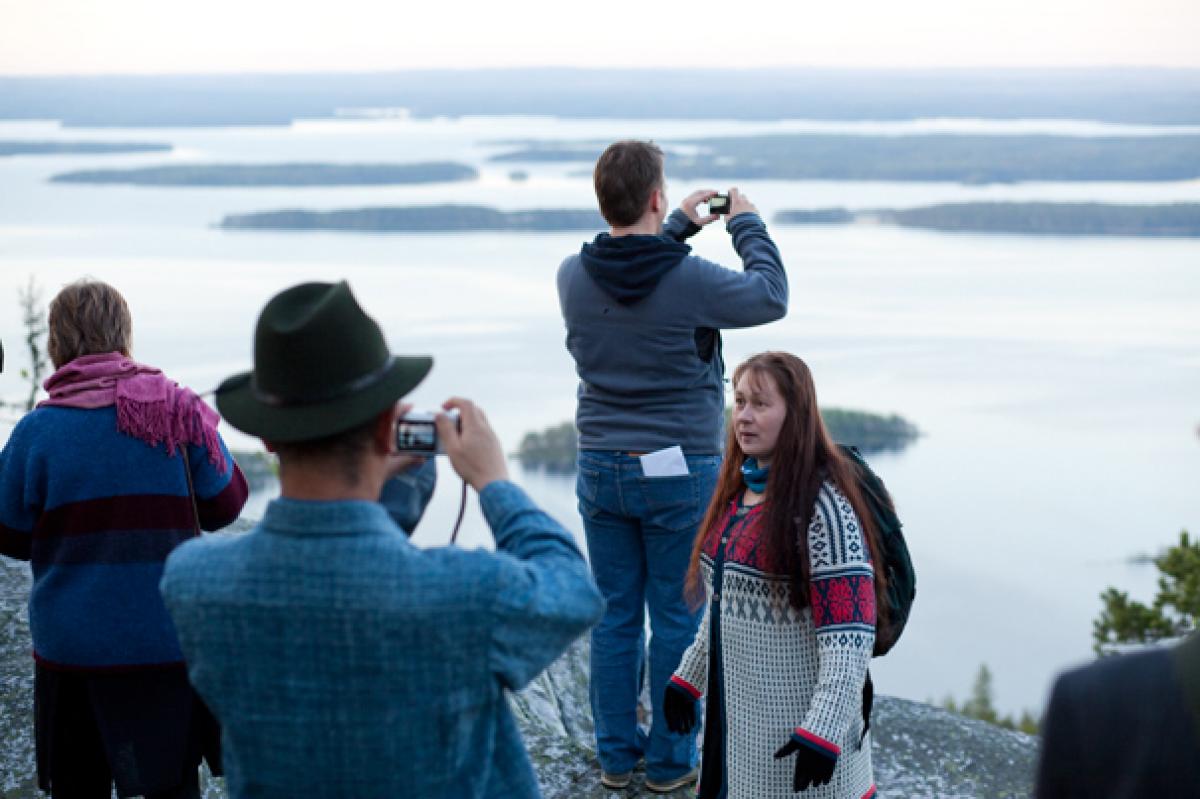
Ethical Questions on Working with Soundscapes
I attended a soundscape conference on Mount Koli in Finland, and I really enjoyed this keynote paper by Andra McCartney. She asked a lot of important questions concerning what some would call «Sonic Tourism».
Andra McCartney published her keynote paper on the Soundwalking Interactions blog. This is an excerpt:
When soundscape composers, documentarians, and artists work with soundscapes, they are expressing relationships to the place of work and its inhabitants and visitors, to the sounds listened to, recorded from or projected into the place, and to the audience of the work. Each time a soundscape composer designs a soundwalk or a theatre piece, an installation or broadcast work, relationships with the world are expressed through how the maker treats the place, the sounds and the audience.
Does the maker want to reveal particular sonic aspects of the place as it is, as it used to be, as it might be? Does the composer want to create an ideal place through sound and if so, what are the characteristics of this imaginary place and what ideas and values inform this utopic creation? How does the composer treat the sounds? How prominent are the composer’s treatments in relation to the sounds originally heard in that place, and what are the characteristics of this electroacoustic ecology? What are the dominant and masked sounds in the piece and how do they interact?
What connections are there in the work between what is heard in the piece and the place of recording? Does the maker imagine the audience as deafened into numbness and needing to be awakened to true listening by the composer or soundwalk leader’s approach to the soundscape? Do we imagine the listener is ignorant and needing enlightenment? Do we think of the listener as possessed of original and unusual ways of listening, contributing to an expanded awareness of how to work with soundscapes? What are the ethics of this expression, and how are these ethics informed by underlying ideologies of sound, of sound production, and of sound ecology?
Read the full article here.
List of References
Text by Dr. Andra McCarney from her keynote presentation at WFAE international conference Ideologies and Ethics in the Uses and Abuses of Sound, Koli, Finland, June 19, 2010.
Biography
Published on July 05, 2010
Last updated on April 09, 2024
Topics
Ecology describes the relationships among living organisms. At Norient, we add sounds and music, asking, for instance: what does a field recording tell about the environment it was recorded?
What happens when U.S.-blogger collects african music and offers it for free? What is the difference between «textually signaled» and «textually unsignaled»?
About Indian musicians in German pedestrian zones and the relationshis of music and place in academic research.
How do acoustic environments affect human life? In which way can a city entail sounds of repression?
A generative practice that promotes different knowledge. One that listens is never at a distance but always in the middle of the sound heard.
